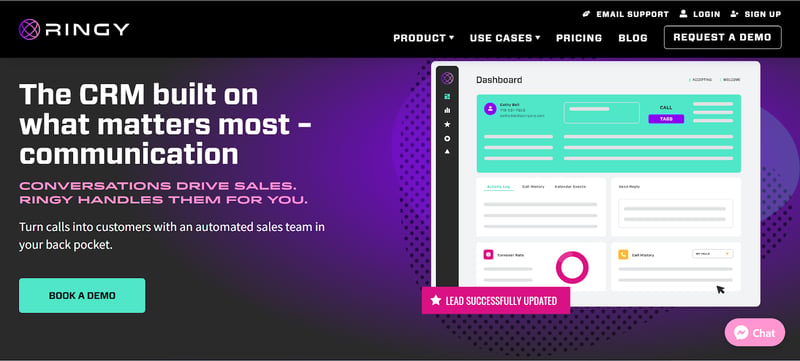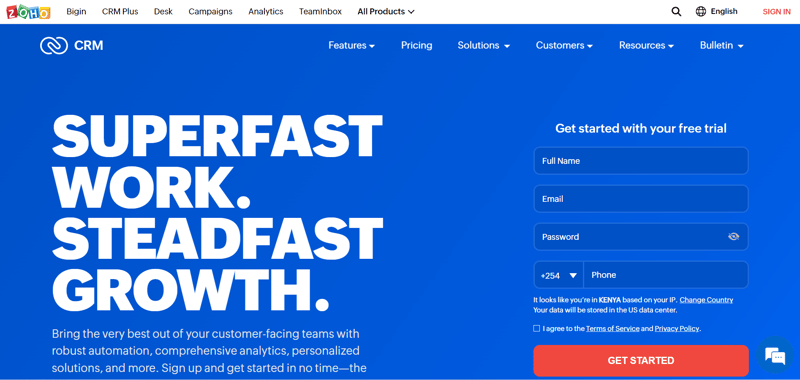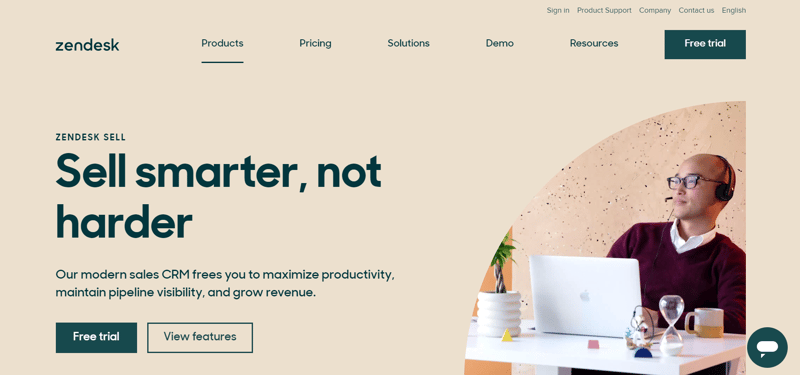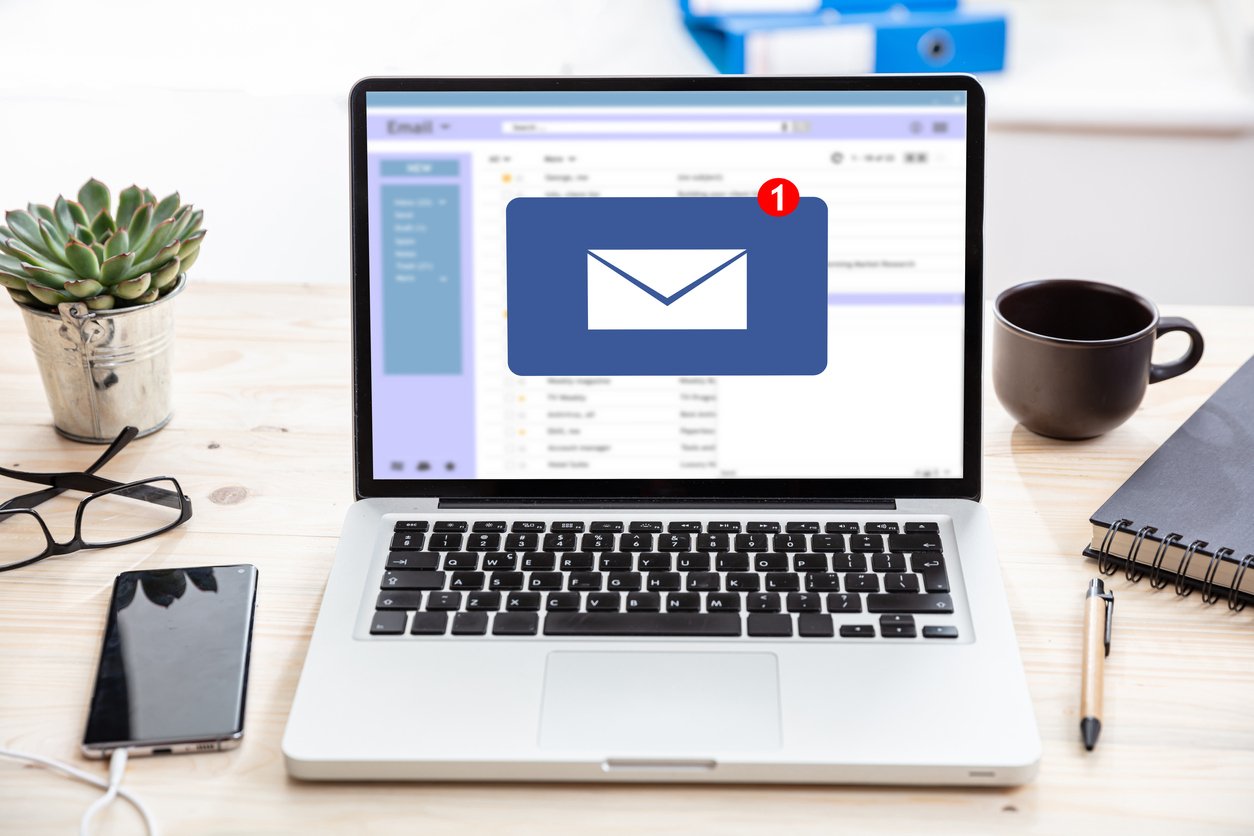
How to Generate More B2B Sales Leads [Process, Tips & Strategies]
 Updated on
Updated on
By Ringy
Table of Contents
Table of Contents
Generating B2B sales leads is as easy as ABC...wait, scratch that! Generating B2B sales leads can be a complex and time-consuming process. But with the right approach, tips, and strategies in place, generating more B2B sales leads is easy.
To make it work for you, we've broken down the B2B sales lead generation process into manageable steps you can follow.
This guide will help you set up lead generation for B2B sales that work for your business and provides high-quality B2B sales leads.
Let's jump right in!
What Is Lead Generation for B2B Sales?
Lead generation for Business-to-Business (B2B) sales is creating prospective customer interest in products or services through different methods, such as emailing and digital advertising.
You can use lead generation to identify prospects likely to become customers and nurture those leads by engaging them through the sales cycle.
How Lead Generation Works
Lead generation usually starts with an effective content marketing campaign that creates brand awareness, trust, and loyalty among target audiences.
Brand awareness involves developing informative content about the services offered and engaging prospects with relevant content on various platforms such as blogs, social media, newsletters, etc.
According to a 2020 survey conducted by Bright Talk, top-performing B2B companies allocate over 53% of their budget towards lead generation activities. Also, 34% of marketers allocate less than 50% of their budget toward lead generation.
This shows the importance of lead generation efforts for B2B companies that want to stay competitive in their industry and maintain a steady sales pipeline.
B2B Sales Leads Generation Quantity vs. Quality

B2B Sales Leads Generation Quantity vs. Quality is an important concept to understand when looking at the success of any business.
Simply put, sales lead generation quantity refers to the number of leads generated for a business. In contrast, sales lead generation quality refers to how qualified each lead is.
To better understand this concept, let's look at it more closely. First off, what is meant by 'quantity'?
In terms of lead generation, businesses need to cast a wide net to find potential customers interested in their products or service.
This could involve marketing techniques such as cold calling, email campaigns, or social media outreach. Anything that can bring more potential buyers into contact with the company should be considered part of its lead generation quantity strategy.
On the other hand, 'quality' refers to how well-suited those leads are for actual conversion into customers. In other words, it looks at the likelihood of them becoming paying customers and whether they are likely to remain loyal over time.
Lead qualification and scoring metrics can be used here, along with careful research into customer needs and wants, to assess which leads have a higher chance of converting into actual paying customers down the line.
Now that we have established what both terms mean individually, let us look at how they differ.
|
Factors |
Quality |
Quantity |
|
Focus |
Quality focuses on finding those leads which are highly targeted and have greater chances of being converted into actual customers. |
Quantity precedes generating more contacts (even if they aren't all relevant). |
|
Cost |
Quality is a more expensive approach as it requires careful research into prospects and how well they match the preferences of a given business. |
Lead generation quantity is more cost-effective as it involves generating many leads simultaneously, but it may only sometimes lead to conversions. |
|
Time Investment |
Generating quality leads requires investing substantial time into thoroughly researching potential customers to guarantee that only qualified candidates get contacted. |
Generating high quantities requires less time investment since there is no need for detailed research or analysis. |
|
Long-Term Success |
Concentrating on generating higher quality means fewer contacts overall but significantly better chances at closing deals due to targeting individuals who already show interest. |
Focusing on generating higher quantities may result in short-term gains due to sheer numbers but often fails because only some people respond positively enough for real success. |
B2B sales leads generation quantity vs. quality should not be seen as mutually exclusive concepts. Instead, it should be viewed holistically, where one complements and reinforces the other for maximum impact and ROI.
Businesses need large volumes and highly qualified prospects if they want serious success with their sales lead-generation activities over longer periods.
Process of Lead Generation for B2B Sales

As promised, we want to make this B2B sales lead generation process as easy as possible. It all starts with the basics:
1. Targeting and Segmentation
Targeting and segmentation are identifying your ideal target audience for your product or service. It involves:
- Researching the industry,
- Creating buyer personas, and
- Segmenting your audience according to their needs, interests, and behaviors.
This allows you to create messaging tailored to each group and ensure that you're targeting leads who are more likely to convert.
2. Lead Qualification
Qualifying leads pinpoint whether potential customers are eager about what you offer based on their level of interest and engagement.
This includes asking questions such as:
- 'Is this a business decision maker?',
- 'Does this prospect have a budget for our solution?' and
- 'Does the prospect currently use a similar product?'
Qualified leads are more likely to convert into customers than unqualified leads, as they are more aware of what they need from you and are less likely to waste your time with unnecessary conversations or meetings.
3. Lead Nurturing
After you have identified and qualified leads, the next step is to nurture them until they are ready to purchase.
Lead nurturing involves creating content that resonates with the lead and provides valuable insights that answer their questions and solve their problems. This strengthens relationships between you and the lead, helping them move further in their buying journey.
You can further nurture leads through:
- Email campaigns,
- Webinars, and
- E-books.
According to research, companies who nurture their leads make 50% more sales-ready leads at 33% lower cost than those who don't nurture them. This is quite a powerful argument in favor of lead nurturing, which is why it's an essential part of lead generation for B2B sales.
4. Lead Scoring
You've now identified your target market and nurtured them to the point of making a purchase. But how do you rule out any doubt and ensure that the lead is genuinely sales-ready?
Lead scoring is the answer. It assigns value to prospects based on their interactions with you, such as website views, content downloads, and email opens. Depending on how many points each activity scores, you can determine how close they are to make a purchase.
Higher lead scores indicate higher levels of interest and likelihood that they will convert into customers. This helps sales teams prioritize leads and focus on prospects ready to buy.
As your leads increase, investing in a CRM system is ideal for managing the lead scoring process and keeping track of all B2B sales leads. In doing so, you can nurture each opportunity much more effectively.
5. Lead Conversion
Hitting a home run doesn't have to be a long shot, and you can effectively do it by following a systematic approach like the one we've outlined above.
Lead conversion is the ultimate milestone in the lead generation process, where sales reps take promising prospects through multiple stages until they become loyal customers.
To ensure a harmonious fit between what customers need and your business's solutions, it's important to have demos, trials, or meetings that delve into understanding customer requirements.
It's also important to monitor customer feedback and ensure customer service is up to par. After all, a satisfied customer can quickly turn into an advocate for your business - helping you attract more B2B sales leads through word-of-mouth recommendations.
5 Effective Strategies to Generate Business-to-Business Sales Leads

Generating B2B sales leads can be hard work. But if you use the right strategies, it'll be easier to get more qualified leads and close more deals.
Here are some proven lead generation strategies for B2B sales that you can employ today:
1. Networking
Networking involves establishing relationships and connections with individuals or businesses interested in a company's products or services.
The key here is to build trust, listen to what others say, share valuable information, and ensure that conversations are mutually beneficial.
2. Referral Marketing
Referral marketing is a reliable and potent technique for obtaining sales leads between businesses through referrals from individuals who have had excellent experiences with an organization's products or services.
A publication by McKinsey found that referral programs can increase customer acquisition by up to 50%, making it an effective lead generation tool.
Word-of-mouth referrals can be incredibly powerful, as they come directly from trusted sources and create trust in the eyes of potential customers. Companies can offer incentives such as discounts or exclusive offers to encourage customers to refer them.
3. Content Marketing
Content marketing includes blog posts, white papers, videos, webinars, or any other content that provides value on topics relevant to prospective buyers.
Content Marketing Institute's research reveals that almost one-third of participants stated their organization's success with content marketing within the past year was substantial or incredibly successful.
The majority of those surveyed (74%) said the value generated by their content was a primary factor in generating leads.
The goal is not only to provide valuable information but also to create opportunities for engagement so companies can gather more information about their prospects and nurture them into leads over time.
4. Email Marketing
Research from Constant Contact reveals that 60% of customers responded to an email campaign by purchasing.
With email marketing, companies can reach out to B2B sales leads in a personalized and cost-effective way. They can deliver messages tailored to the needs of their customers and track how recipients interact with their emails.
5. Social Media
Recently, Social Media Examiner released its "2022 Social Media Marketing Industry Report", and the results were precise.
Most B2B marketers (85%) primarily use Facebook, and 81% prefer LinkedIn. This indicates that these two platforms are essential for businesses to utilize when marketing their products or services.
These platforms were followed by Instagram (74%), YouTube (51%), and Twitter (49%) in terms of usage.
A good way to leverage social media is by engaging in conversations and connecting with people who may have an interest in products or services.
Rather than simply promoting their services, companies should focus on engaging users by utilizing compelling visuals or witty copywriting. This way, your brand will garner attention without seeming too promotional or spammy - two things that can quickly turn away prospective customers!
5 Tips to Generate Sales Leads B2B

At this point, you have all the necessary strategies to get B2B sales leads. But how do you ensure you get the most out of your B2B lead generation?
Here are five tips to help you increase B2B sales leads:
1. Don't Overlook Your Existing Network
Ensure you're leveraging your existing network of contacts. Get creative and think outside the box to identify B2B sales leads who might need your product or service.
2. Use Automation to Nurture Leads
Automation is integral to B2B lead generation. Use software like CRM systems to nurture sales leads B2B and keep them engaged with your product/service.
3. Keep Up With Trends
Stay on top of industry trends, and use them to your advantage to generate b2b sales leads. You can set yourself apart from competitors by staying ahead of the curve and being aware of market alterations and advancements.
4. Leverage Social Media
Use your social channels to engage with prospects, answer questions, and provide helpful resources to build relationships and generate B2B sales leads.
5. Focus On Quality Over Quantity
Don't just focus on getting as many B2B sales leads as possible; make sure they are quality leads. Focus on finding B2B sales leads that are likely to become customers and turn into long-term clients.
Top Sales Leads Databases Software
Finally, consider investing in sales lead database software to store B2B sales leads and track their progress. Sales lead database software can help you quickly filter B2B sales leads by criteria, such as location, industry, or other demographic information.
So, here are our selection of the top sales leads databases software:
Ringy (It's us)

As a CRM, Ringy helps B2B sales teams find, nurture, and close B2B sales leads. Ringy can provide your sales teams with a comprehensive suite of lead management tools to help them identify the right prospects and create relationships that ultimately lead to closed deals.
Some of our main features include the following:
|
Features |
Purpose |
|
Automation ensures that no lead or task falls through the cracks and that everyone is informed of all activities within the system. |
|
|
Email drip campaigns ensure that your messages are always timely and relevant by sending the right message at the right time. |
|
|
The calling capabilities offered by Ringy allow marketers to stay connected with their contacts by making it simple and quick to initiate conversations directly from within the CRM. |
|
|
With Ringy's integrations feature, users can easily connect multiple apps via our API to gather all their data in one central hub. |
|
|
Ringy lets you track which marketing channels produce quality leads so you can adjust your strategy accordingly for maximum efficiency and effectiveness. |
|
|
Our reporting features provide users with detailed insights into B2B sales performance and customer interactions. |
Overall, Ringy is a great B2B sales leads database software for B2B sales teams looking to take their lead management processes to the next level. With its powerful features, users can easily transform their B2B sales pipeline and generate quality B2B sales leads.
Zoho CRM

Another top B2B sales lead database software is Zoho CRM. It provides users with a wide range of features and capabilities to help them stay on top of their lead management needs.
Zoho's main features include the following:
- Lead Scoring
- Lead Segmentation
- Analytics & Reporting
- Integrations
Zendesk Sell

The last B2B sales lead database software on our list is Zendesk Sell. It allows B2B sales teams to connect with customers and close deals faster by streamlining their B2B sales processes.
The main features of Zendesk Sell include:
- Lead Management
- Deal Management
- Integrations
So there you have it! Three B2B sales lead database software tools that will help B2B sales teams stay organized and on top of their B2B sales leads.
Conclusion
After generating leads, B2B sales teams need to be able to track and manage them to maximize their success. B2B sales lead database software can help B2B sales teams stay organized and on top of leads to close more deals.
With the right B2B sales lead database, B2B sales teams will be able to identify the right prospects, nurture them, and take the right actions to convert them into customers.
With Ringy's B2B sales lead database software on your side, B2B sales success is just a click away! Give it a try today and see how it can help you grow your B2B sales.

Skyrocket your sales with the CRM that does it all.
Calling? Check. SMS? Check. Automation and AI? Check. Effortlessly keep in touch with your customers and boost your revenue without limits.

Take your sales to new heights with Ringy.
Sales in a slump? Ringy gives you the tools and flexibility you need to capture leads, engage with them, and turn them into customers.
Subscribe to Our Blog
Enter your email to get the latest updates sent straight to your inbox!
Categories
Related Articles




































































































